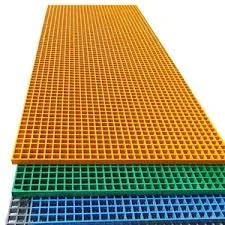
-
 Afrikaans
Afrikaans -
 Albanian
Albanian -
 Amharic
Amharic -
 Arabic
Arabic -
 Armenian
Armenian -
 Azerbaijani
Azerbaijani -
 Basque
Basque -
 Belarusian
Belarusian -
 Bengali
Bengali -
 Bosnian
Bosnian -
 Bulgarian
Bulgarian -
 Catalan
Catalan -
 Cebuano
Cebuano -
 China
China -
 China (Taiwan)
China (Taiwan) -
 Corsican
Corsican -
 Croatian
Croatian -
 Czech
Czech -
 Danish
Danish -
 Dutch
Dutch -
 English
English -
 Esperanto
Esperanto -
 Estonian
Estonian -
 Finnish
Finnish -
 French
French -
 Frisian
Frisian -
 Galician
Galician -
 Georgian
Georgian -
 German
German -
 Greek
Greek -
 Gujarati
Gujarati -
 Haitian Creole
Haitian Creole -
 hausa
hausa -
 hawaiian
hawaiian -
 Hebrew
Hebrew -
 Hindi
Hindi -
 Miao
Miao -
 Hungarian
Hungarian -
 Icelandic
Icelandic -
 igbo
igbo -
 Indonesian
Indonesian -
 irish
irish -
 Italian
Italian -
 Japanese
Japanese -
 Javanese
Javanese -
 Kannada
Kannada -
 kazakh
kazakh -
 Khmer
Khmer -
 Rwandese
Rwandese -
 Korean
Korean -
 Kurdish
Kurdish -
 Kyrgyz
Kyrgyz -
 Lao
Lao -
 Latin
Latin -
 Latvian
Latvian -
 Lithuanian
Lithuanian -
 Luxembourgish
Luxembourgish -
 Macedonian
Macedonian -
 Malgashi
Malgashi -
 Malay
Malay -
 Malayalam
Malayalam -
 Maltese
Maltese -
 Maori
Maori -
 Marathi
Marathi -
 Mongolian
Mongolian -
 Myanmar
Myanmar -
 Nepali
Nepali -
 Norwegian
Norwegian -
 Norwegian
Norwegian -
 Occitan
Occitan -
 Pashto
Pashto -
 Persian
Persian -
 Polish
Polish -
 Portuguese
Portuguese -
 Punjabi
Punjabi -
 Romanian
Romanian -
 Russian
Russian -
 Samoan
Samoan -
 Scottish Gaelic
Scottish Gaelic -
 Serbian
Serbian -
 Sesotho
Sesotho -
 Shona
Shona -
 Sindhi
Sindhi -
 Sinhala
Sinhala -
 Slovak
Slovak -
 Slovenian
Slovenian -
 Somali
Somali -
 Spanish
Spanish -
 Sundanese
Sundanese -
 Swahili
Swahili -
 Swedish
Swedish -
 Tagalog
Tagalog -
 Tajik
Tajik -
 Tamil
Tamil -
 Tatar
Tatar -
 Telugu
Telugu -
 Thai
Thai -
 Turkish
Turkish -
 Turkmen
Turkmen -
 Ukrainian
Ukrainian -
 Urdu
Urdu -
 Uighur
Uighur -
 Uzbek
Uzbek -
 Vietnamese
Vietnamese -
 Welsh
Welsh -
 Bantu
Bantu -
 Yiddish
Yiddish -
 Yoruba
Yoruba -
 Zulu
Zulu
fiberglass shell
The Versatility and Benefits of Fiberglass Shells
Fiberglass shells have become increasingly popular in various industries, thanks to their durability, lightweight characteristics, and versatility. Made from a composite material that combines glass fibers with resin, fiberglass offers a range of benefits that make it an ideal choice for applications ranging from construction to transportation and recreation.
One of the foremost advantages of fiberglass shells is their exceptional strength-to-weight ratio. Unlike traditional materials such as wood or metal, fiberglass is significantly lighter, which translates into reduced transportation costs and ease of handling. This makes fiberglass shells an excellent option for manufacturers who need to transport bulky products or for industries where weight is a critical factor, such as aviation or automotive sectors.
In addition to being lightweight, fiberglass is also remarkably strong and resilient. It is resistant to corrosion, rust, and degradation from environmental factors, making it an excellent choice for outdoor applications. Products like boats, swimming pools, and architectural cladding often utilize fiberglass shells due to their ability to withstand harsh weather conditions and prolonged exposure to moisture without compromising structural integrity. This longevity means that products made from fiberglass entail lower maintenance costs and a longer life span compared to those made from alternative materials.
fiberglass shell

Fiberglass shells also offer a high level of flexibility in design. The molding process allows for intricate shapes and customized features that can meet specific aesthetic or functional requirements. This flexibility enables designers and manufacturers to create unique products that cater to niche markets or fulfill specific consumer needs. Industries such as automotive and aerospace benefit from this design freedom, allowing for more aerodynamic forms that can improve performance and efficiency.
Another significant advantage of fiberglass is its insulation properties. Fiberglass shells can provide effective thermal and acoustic insulation, which is particularly beneficial in building applications where energy efficiency is a concern. By helping to maintain stable indoor temperatures and reducing noise transfer, fiberglass can enhance comfort in residential and commercial spaces alike.
Moreover, with increasing environmental awareness, fiberglass shells are gaining traction as a sustainable option. Many manufacturers are now utilizing recycled materials in the production of fiberglass, further minimizing environmental impact. The non-toxic nature of uncured resin and the recyclable nature of fiberglass products after their life cycle add to its sustainability credentials, appealing to eco-conscious consumers and industries.
In conclusion, fiberglass shells are a remarkable material with versatile applications across various fields. Their lightweight yet strong properties, resistance to environmental stresses, design flexibility, insulation advantages, and sustainability make them a leading choice in modern manufacturing. As technology progresses and the demand for innovative materials continues to rise, fiberglass is set to play an even more significant role in shaping the future of products we rely on. Whether in transportation, construction, or recreational sectors, fiberglass shells are redefining the standards for functionality and durability.
Latest news
-
Exploring the Benefits of Top Hammer Drifter Rods for Enhanced Drilling PerformanceNewsJun.10,2025
-
High-Precision Fiberglass Winding Machine for GRP/FRP Pipe Production – Reliable & Efficient SolutionsNewsJun.10,2025
-
FRP Pipes & Fittings for Shipbuilding - Corrosion-Resistant & LightweightNewsJun.09,2025
-
Premium FRP Flooring Solutions Durable & Slip-ResistantNewsJun.09,2025
-
Premium Fiberglass Rectangular Tanks Durable & Lightweight SolutionNewsJun.09,2025
-
Tapered Drill String Design Guide Durable Performance & UsesNewsJun.09,2025









